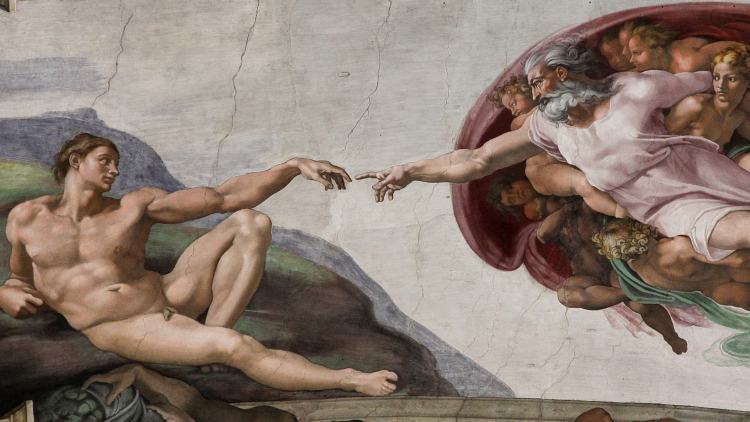God's Attributes

The Creation of Adam (1508–1512) by Michelangelo. If we're made 'in the image of God', what is God like?
If God exists, what is God like? We have a way of anthropomorphising Him/Her/Them. But why think God is humanlike at all?
Moses Maimonides (b. 1135) argued that it was a mistake to follow scripture literally and to believe that God is bodily or anything like that. Attributes in general, he claimed, are either accidental (and thus not really attributes) or essential (and, for God, cannot be defined). This debate focuses on the latter.
We are happy to talk about our essential attributes. Humans are mortal, warm-blooded, and have hearts (literally speaking, at least).
We might then ask why we can’t do the same for God. For example, we might want to say that God values loyalty and truth; that God is wise, loving, and benevolent; but that God is vengeful.
However, according to Maimonides, we cannot understand God’s being. That is to say, we cannot put into words anything about God. (Centuries later than Maimonides Søren Kierkegaard (b. 1813) would also claim that it was impossible to provide external descriptions of God’s attributes.)
We can understand God in terms of what God is not (‘negative theology’), an argument Thomas Aquinas (b. 1225) adopted, too: while we cannot assign attributes to God’s being (e.g. into heavy metal), we can provide negations of them (e.g. not into heavy metal). We’re also able to understand God’s actions through the results of what God does.
These arguments present issues for ‘theological resemblanceism’: the religious idea that our moral properties (being good, being bad, being neutral) can be explained as divine resemblances to God. In other words, the only way in which a finite creature can be moral is by resembling God’s character ‘in the image of God’.
But how can we possibly know what is good and what is bad if we don’t know what the attributes of God’s character are? Worry not, says philosopher Robert Adams (b. 1937): we can still resemble God’s attributes (e.g. a love of cooking) without knowing exactly what aspects of our attributes God shares (e.g. creativity).
Still, it would be nice to know of our connections to God. Moreover, how do we overcome the charge that it is unintelligible to argue we share finite attributes with an infinite being?
